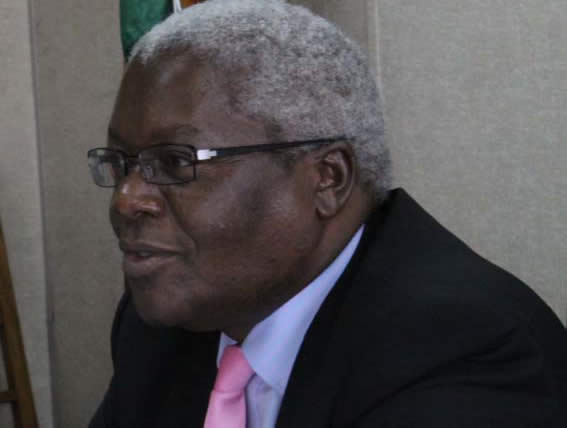Councils urged to craft long-term water plans

From Abel Zhakata in Mutare
ALL local authorities will in future be required to produce long-term water production master plans to ensure that infrastructure development matches water availability and so curb current shortages facing many municipalities.
Addressing delegates who attended the Water and Sanitation Service Level Benchmarking launch in Mutare yesterday, the Minister of Local Government, Public Works and National Housing, Dr Ignatius Chombo, said water was a key deliverable that was getting scarcer in most urban authorities.
The benchmarking was introduced against the backdrop of serious deterioration of municipal services during the 2000 to 2009 era when the country was faced by economic decline.
“This led to failure to sustain investments as municipal revenues were eroded by inflation. The situation that obtained should be a thing of the past as most urban areas did not receive water for days without seeing a drop from their taps, very few, if any, sewerage treatment works were working with the majority of treatment ponds practically abandoned.
“Sewage flows in the streets had become a common sight. It took long to remove sewage flows from the streets. Refuse collection is still erratic, inconsistent and infrequent, while littering and pollution of the environment seems to be continuing.”
The Service Level Benchmarking, he said, is thus one of the tools required to monitor and support recovery efforts in service delivery.
“Thus in the context of urban councils management in Zimbabwe, SLB can be defined as the process of determining how efficiently and effectively councils are delivering services as well as efforts that councils are making to improve the mobilisation of own resources, and to measure whether these resources are being utilised in an optimum manner or not,” he said.
Speaking at the same occassion, the Minister of Environment, Water and Climate, Cde Saviour Kasukuwere, said water plays a pivotal role in the economy of the country.
“As a Government and ministry we are already in the process of implementing various pronouncements of the National Water Policy such as the establishment of commercial water supply and sanitation utilities.”
He urged households to pay their water bills saying people were wasting money on luxuries instead of paying for water which is a basic need.
“Don’t be lenient on those who do not want to pay for the water they are using. It is cheaper compared to the airtime they use daily.
“As Government, we are alive to the nexus of water, the economy and the health of its people and the challenges we are facing. Guided by Zim-Asset, we a reworking round the clock to address these challenges with full participation of all stakeholders,” he said.
He thanked the World Bank Group for supporting the SLB initiative.








Comments